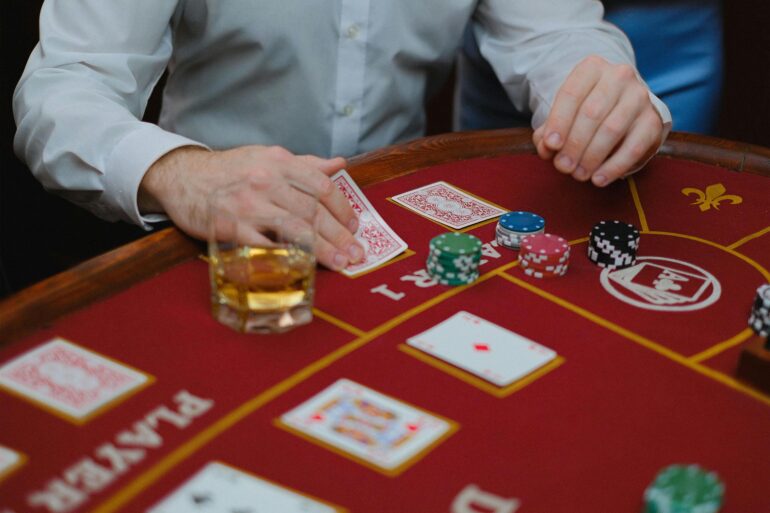Poker was first played in the early 1800s in New Orleans but the actual origin is still unknown. Some historians claim that the game can be traced back to the 10th-century Chinese emperor who played a domino card game. Although considered a game of luck, poker requires solid skills and patience and the right understanding of poker rules.
Poker games in the casinos of Goa and Sikkim offer an amazing gaming experience. It offers a vibrant amalgamation of strategy, skill and unforgettable entertainment. Participating in poker games not only polishes up your game but provides the chance to meet fellow poker enthusiasts and at the same time enjoy the delight of strategic wins. Whether you’re a professional or newbie at this game, playing poker is a fun way to hone your skills and improve your patience. And if you feel playing at a professional setup is not something you’re up to, you can play at online platforms like Adda52 to enjoy the adrenaline rush of a well-played hand. If you’re new to poker, then it is essential that you get some of the beginner poker strategies at hand and then begin.
It’s important to like the game
To begin with, poker is a mentally-intensive game, and it only gets interesting if you’re interested. Whether you’re a professional poker player or playing it for fun or a hobby, it only gets better if you’re having fun playing it. If there is frustration, anger, or fatigue, it is ideal to quit the game session at the very moment. This will help you save money. You need to be happy and be mentally present in the game to be good at this game. Also, it is important to know the poker rules so that you’re no stranger to the game.
Fewer hands, but play aggressively
One of the first tips that beginners in poker must know is the limit to how many starting hands one can play. If the player tries to play too many hands, there is a big chance they will bleed the chip stack. The best and easiest way to improve the bottom line is by having a strong pre-flop. Although building a rock-solid pre-flop is simple, maintaining it is key and can also get tough. Patience is crucial. You will be at a loss if you don’t keep calm and get restless to play a hand that’s not worth playing. As a beginner, the right approach is to play tight, playable hands and play them aggressively. Remember, playing all your hands with aggression, even those that are easy to speculate, helps you camouflage your hand.
Fierce semi-bluffs
Bluffing the right way is your go-to card to rule this game truly. However, if you bluff effectively, you can retain all your money quickly. Always remember to let the cards dictate how you will bluff or whether you’ll decide to bluff or not. If your bluff gets called, some draw needs to be kept as a backup plan. So, it is essential to keep your bluffs under control, like bluffs with hands that will give you the best hand later in the game.
Fold if unsure
Do you want to be a decent or professional player at poker? The difference is that the professional player’s main skill is to give out a good hand when they think they are beaten. Although this sounds easy, it is tough to do this at play due to our instincts, since we naturally want to win and are curious as humans. When you give up the hand, you also give up the opportunity to win the pot and the satisfaction of what the other player holds. As a poker player, you need to call the bluff in the right situation and not too often to be away from losing the game. If you are in a dilemma whether to bet, raise, fold, or call, choose to fold.
Don’t be the first one to limp
If you are the first player to enter a pot, you must not limp. Limping is calling the big blind pre-flop, which is a no-go. Two of the main reasons to avoid this play are:
- Winning the pot before the flop is not possible like it was if you raised it
- Giving the players attractive pot odds, which allows multiple players to join in, and your chances of winning become less
Ideally, you can choose to limp only when another player has already limped, which is called over-limping. This is a strategic move and can be fruitful for you on the flop.
Fast-play helps to build the pot
One of the best moves is to bet your strong hands, which helps you protect your equity and, at the same time, build the pot. However, this does not mean you always raise or bet the strong hands post-flop. It is essential to check your strong hands in cases where:
- There is a thin chance that you’ll be outdrawn
- Your opponent has a range of strong showdown-value hands
- You don’t have enough scared hands that may ward you off from getting paid on later streets
But if you are uncertain about what hands to play, then the safest thing is to bet. It may be disappointing if your opponent folds, but it is better than missing out on the raised value.
